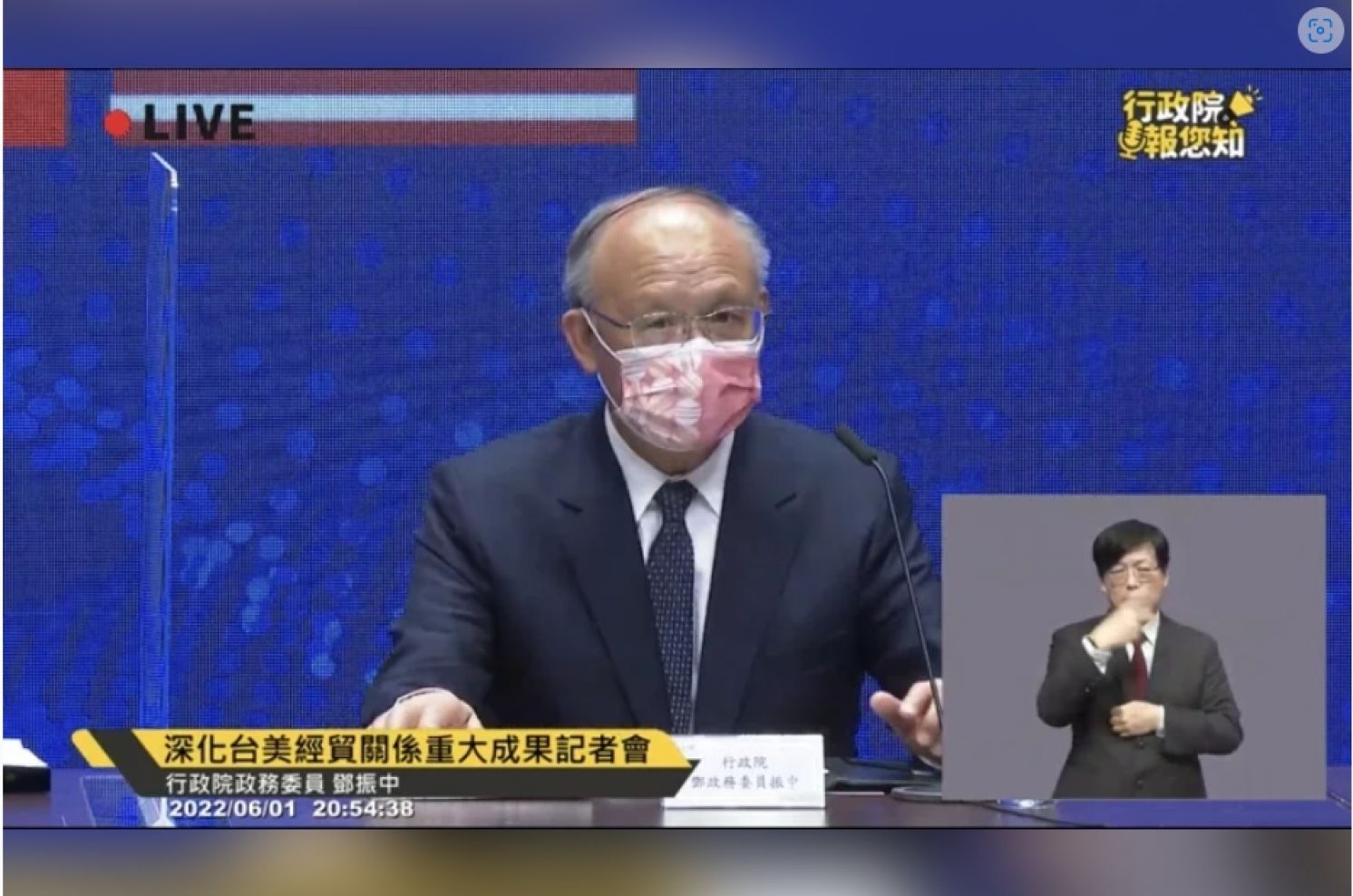
Breakthrough on U.S.-Taiwan Economic Relations: Executive Yuan Announces Launch of "U.S.-Taiwan Initiative on 21st-Century Trade"
United Daily News, June 1, 2022
On June 1, the Executive Yuan held a press conference on a major breakthrough in deepening U.S.-Taiwan economic and trade relations. Spokesman Luo Ping-cheng and Minister without Portfolio John Deng of the Executive Yuan announced that Taiwan and the United States have officially launched the “U.S.-Taiwan Initiative on 21st-Century Trade Initiative.” A first meeting will be held in Washington at the end of June as both sides take concrete actions to deepen the bilateral economic and trade relations.
On the evening of June 1, Deng had a video conference with Deputy U.S. Trade Representative Sarah Bianchi where they had a dialogue on U.S.-Taiwan economic and trade cooperation. U.S. Trade Representative Katherine Tai and Deng also have agreed to hold talks again in a few weeks.
Deng indicated that the world has generally recognized that Taiwan is not only a global semiconductor manufacturing center, but it also holds the core technology in the U.S.-China competition. This recognition became even clearer due to the intensification of the U.S.-China trade conflict, the impact of the epidemic on the international community, and the emergence of supply chain issues. Furthermore, the United States is increasingly aware that it must strengthen its political and economic ties with Taiwan in order to stabilize the resilience and security of its supply chain.
According to Deng, Taiwan and the United States confirmed in the meeting earlier that both sides will launch an important economic and trade initiative, and the jointly agreed name is the “U.S.-Taiwan Initiative on 21st-Century Trade”. According to this initiative, Taiwan and the United States will start trade negotiations in order to obtain a high-standard and economically meaningful trade agreement in the future. With this goal in mind, 11 trade areas will first be negotiated.
These 11 trade areas are trade facilitation, regulatory practices, agriculture, anti-corruption, support for small and medium-sized enterprises in trade, benefits of digital trade, worker-centric trade, environmental protection, standards, state-owned enterprises, and non-market economy policies and practices.
Deng mentioned that this initiative has several meanings for U.S.-Taiwan economic and trade relations, including the fact that the two parties have finally begun trade negotiations, which is anticipated for many years. It is believed that the outcome of this negotiation will lay a lasting foundation for the future development of the U.S.-Taiwan relations and will create more space for economic and trade cooperation. This can surely be seen as a historic breakthrough.
Deng also added that the negotiation between the two sides include a wide range of topics, which makes this U.S.-Taiwan cooperation a powerful one. In the future, the topics selected for negotiation are also expected to expand in order to keep pace with the times. Since the administration of President Joe Biden has not authorized to negotiate tariffs, this initiative focuses on using a building block method to promote the signing of an agreement, which would cover all the important components of a regional trade agreement. Once the right time has come, there would be an opportunity to complete a U.S.-Taiwan free trade agreement to which Taiwan has long looked forward.
Since the scope of this initiative is extensive and in-depth, the time and manpower necessary to promote this negotiation will exceed that in the past when dealing with the U.S.-Taiwan economic and trade relations. Deng stated that in the future, that they will seek advice from various government ministries, private enterprises and think tanks to strive for the best interests for Taiwan. This initiative will help connect Taiwan with the global economy, and accelerate the negotiation of multilateral and bilateral economic and trade agreements between Taiwan and the world.
Finally, Deng reiterated that promoting this initiative and seeking to participate in the Indo-Pacific Economic Framework (IPEF) does not conflict but instead complement each other. The government will continue to strive for an opportunity to participate in the IPEF.